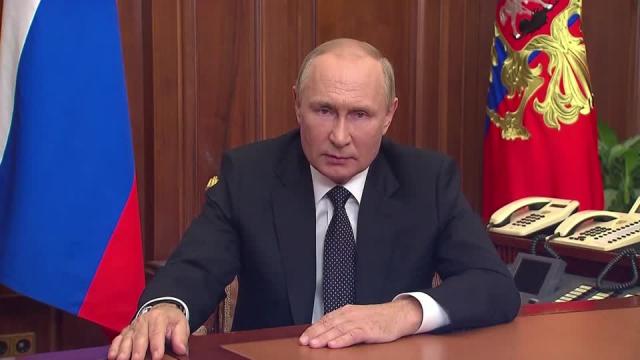'A DANGEROUS CULT'
Children removed from Jewish sect's jungle compound in Mexico

Raffi Berg - BBC News
Tue, September 27, 2022 at 10:20 AM·4 min read
Children and older teenagers have been removed from the jungle compound of a Jewish sect in Mexico following a raid by police, the BBC has learned.
Two members of Lev Tahor were arrested on suspicion of human trafficking and serious sexual offences, including rape, Israel's foreign ministry said.
A three-year-old child removed from the compound has been flown to Israel.
Lev Tahor (Hebrew for Pure Heart) is known for extremist practices and imposing a strict regime on members.
It advocates child marriage, inflicts harsh punishments for even minor transgressions and requires women and girls as young as three years old to completely cover up with robes.
The stricture has earned the group the nickname the Jewish Taliban, because of seeming similarities with the dress code enforced by the Sunni Muslim extremist group which controls Afghanistan.
Police made their way into the compound 11 miles (17.5km) north of Tapachula in Chiapas state on Friday morning.
They had been instructed by a federal judge to detain several leaders suspected of child abuse and rescue members of the sect, following an investigation by the attorney general's Special Prosecutor for Organised Crime (Femdo).
An Israeli source connected to the operation said the boys and girls were quickly separated from the rest of the group, because of fears their lives could be at risk from members trying to prevent them from being removed.
Twenty-six members were found in the compound, among them Israelis with dual citizenships including Canada, the US and Guatemala, Israel's foreign ministry said.
It said a Canadian and an Israeli citizen were arrested, while two other wanted members reportedly left the compound two days before the raid and are being sought. Five more were detained for allegedly breaking immigration rules.
The remaining members are being housed at a facility of the Mexican Ministry of Welfare pending a decision on what will happen to them, the Israeli foreign ministry said.
The three-year-old son of an Israeli, Yisrael Amir, who had previously left the group, was among those removed from the compound. Mr Amir, who was present during the raid, flew back to Israel with his son on Monday.
'Dangerous cult'
The Mexican police worked alongside a four-man volunteer team from Israel, including former Mossad agents, in planning and carrying out the operation.
The elite police unit which raided the compound "very carefully and without resorting to any violence" included both male and female officers because of the number of women and children in the sect, the Israel source said.
"The Mexican authorities did their duty in the best possible way," the source added.
The operation was set in motion about two years ago, when Mr Amir and other relatives of some of those in the group asked one of the former agents for help.
The team travelled between Israel and Guatemala, where the branch had lived since 2014, carrying out surveillance operations and working with local authorities, law enforcement and a Guatemalan private investigator.
In January, about 40-50 members illegally crossed into Mexico, where they continued to be tracked, settling in the jungle north of Tapachula.
The leadership in Guatemala has been at the centre of a kidnapping case since 2018, when two children who had been taken to New York by their mother who had fled the community were snatched back. They were recovered three weeks later in Mexico.
Nine of the sect's members were charged in connection with the case. Four - including the founder's son and current leader Nachman Helbrans - have been jailed, while one was convicted, but freed because of time already served and another is due to be sentenced in November. Two are awaiting trial and one is in custody in Guatemala.
Lev Tahor was formed in Israel in 1988 by Rabbi Shlomo Helbrans, who later moved to the US. He served two years in prison after being convicted of kidnapping in 1994 and drowned in Mexico in 2017.
Numbering up to about 350 members, Lev Tahor has been forced to move from country to country in recent years after coming under scrutiny from local authorities. It is currently spread between Israel, the US, North Macedonia, Morocco, Mexico and Guatemala. Between 70 and 80 members are still in Guatemala.
While the group is often described as ultra-Orthodox, it follows its own sets of rules and has been declared a "dangerous cult" by an Israeli court.
Its leaders have denied breaking local laws and say the group is being targeted because of its beliefs.




















